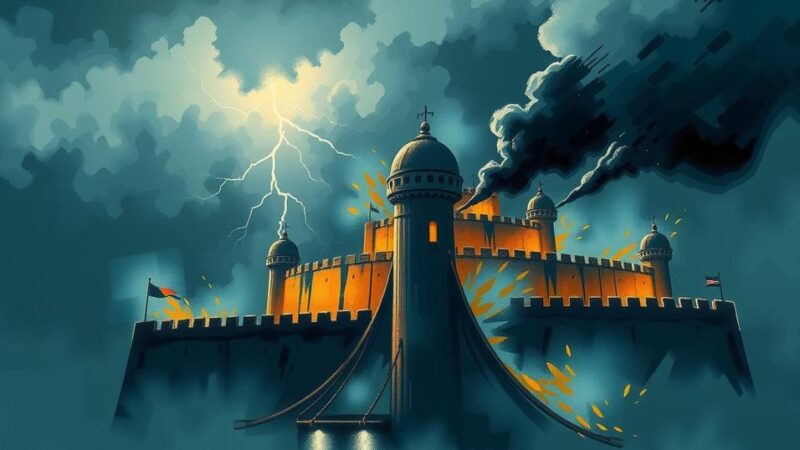Madagascar’s political crisis in 2009 damaged its societal unity and church relations. Approximately 45% of the population is Christian. Church leaders emphasize the need for reconciliation and recognition of past faults as pathways to peace. Rev. Lala Rasendrahasina highlights the church’s commitment to peacemaking despite challenges, supported by international church communities.
Madagascar’s reputation suffered considerably following the political crisis in 2009, which divided its society and jeopardized ecclesiastical unity. Nearly 45 percent of Madagascar’s population identifies as Christian, with nearly equal numbers of Protestants and Catholics. Church leaders argue that acknowledging past mistakes, alongside efforts toward reconciliation and justice, is imperative for achieving lasting peace.
Rev. Lala Rasendrahasina, president of the Church of Jesus Christ in Madagascar and a member of the World Council of Churches (WCC) Central Committee, reported that the church has actively engaged in peacekeeping efforts. He himself faced violence and brief detention by military forces after the change in leadership in March 2009. “The church has never ceased to find a way to help the nation out of this crisis and to maintain peace,” he asserted.
Despite challenges, including limited success in mediating between politicians, the church remains committed to fostering peace. Their experiences reflect a broader global trend where religious organizations seek to address political strife and advocate for reconciliation. This topic will be explored further at the WCC-sponsored International Ecumenical Peace Convocation from May 17 to 25, 2011, in Kingston, Jamaica.
The church’s intersection with politics is not a new issue in Madagascar. Notably, the Council of Christian Churches in Madagascar (FFKM) initiated a seminar aimed at encouraging forgiveness, peace, and reconciliation among the populace. This effort persists despite the political violence that has often targeted the church. Support has come from various groups, including the All Africa Conference of Churches and the World Communion of Reformed Churches.
Rev. Rasendrahasina noted, “This support has sustained the Church of Jesus Christ in Madagascar.” He emphasized the ongoing need for education in moral and ethical values, highlighting that many important principles have been neglected during the crisis and must be restored for future stability.
In summary, Madagascar’s churches play a crucial role in promoting peace and reconciliation within a politically fragmented society. Despite facing challenges, church leaders have remained dedicated to fostering unity and moral education among their communities. The support from global church organizations further strengthens their efforts. Addressing the prior political crisis through honest acknowledgement of past wrongs is essential for cultivating a peaceful future.
Original Source: oikoumene.org






